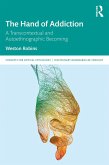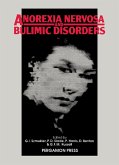`This brief and powerful book has very important things to say to a wider audience; to health care professionals, to therapists, and also to social scientists who deal with questions of femininity, the body, and poststructuralism' - Journal of Health Psychology
`A readable book that contains simplified information of some complicated concepts. It will prove of benefit to those readers in the field of women and social studies' - European Eating Disorders Review
The concepts presented in this book are carefully argued, succinctly organized, and genuinely stimulating.... It provokes clinicians to think about treatment and the effect of diagnostic practices, it provokes researchers to ask different questions, and it provokes students to read beyond dominant and conventional texts. This is a timely and important publication that deserves to feature prominently in the ongoing study of anorexia nervosa' - Journal of Community & Applied Social Psychology
`This book is intelligent, well-written and thought provoking addition to current literature on eating disorders' - Feminism and Psychology
In this wide-ranging book, Julie Hepworth casts a critical light on our contemporary understanding of anorexia nervosa. She locates contemporary discourses of anorexia nervosa within their historical context, showing how current practices continue to be influenced by medicine, psychology, ideology and politics. She argues that anorexia nervosa must be considered within the political, social and gendered relationships that continue to contribute to its definition. The book demonstrates the need for a new conceptualization of anorexia nervosa which would draw on the insights of discourse theory, feminism and postmodernism to create new understandings of anorexia nervosa within contemporary health care practices.
`A readable book that contains simplified information of some complicated concepts. It will prove of benefit to those readers in the field of women and social studies' - European Eating Disorders Review
The concepts presented in this book are carefully argued, succinctly organized, and genuinely stimulating.... It provokes clinicians to think about treatment and the effect of diagnostic practices, it provokes researchers to ask different questions, and it provokes students to read beyond dominant and conventional texts. This is a timely and important publication that deserves to feature prominently in the ongoing study of anorexia nervosa' - Journal of Community & Applied Social Psychology
`This book is intelligent, well-written and thought provoking addition to current literature on eating disorders' - Feminism and Psychology
In this wide-ranging book, Julie Hepworth casts a critical light on our contemporary understanding of anorexia nervosa. She locates contemporary discourses of anorexia nervosa within their historical context, showing how current practices continue to be influenced by medicine, psychology, ideology and politics. She argues that anorexia nervosa must be considered within the political, social and gendered relationships that continue to contribute to its definition. The book demonstrates the need for a new conceptualization of anorexia nervosa which would draw on the insights of discourse theory, feminism and postmodernism to create new understandings of anorexia nervosa within contemporary health care practices.
Dieser Download kann aus rechtlichen Gründen nur mit Rechnungsadresse in A, D ausgeliefert werden.
`This brief and powerful book has very important things to say to a wider audience; to health care professionals, to therapists, and also to social scientists who deal with questions of femininity, the body, and poststructuralism' - Journal of Health Psychology `A readable book that contains simplified information of some complicated concepts. It will prove of benefit to those readers in the field of women and social studies' - European Eating Disorders Review `The concepts presented in this book are carefully argued, succinctly organized, and genuinely stimulating.... It provokes clinicians to think about treatment and the effect of diagnostic practices, it provokes researchers to ask different questions, and it provokes students to read beyond dominant and conventional texts. This is a timely and important publication that deserves to feature prominently in the ongoing study of anorexia nervosa' - Journal of Community & Applied Social Psychology `This book is an intelligent, well-written and thought provoking addition to current literature on eating disorders' - Feminism and Psychology `For those working therapeutically with special interest in eating disorders the book is worthwhile reading broadening the contextual view in which a clinical approach is adopted' - Association for University and College Counselling Newsletter & Journal









